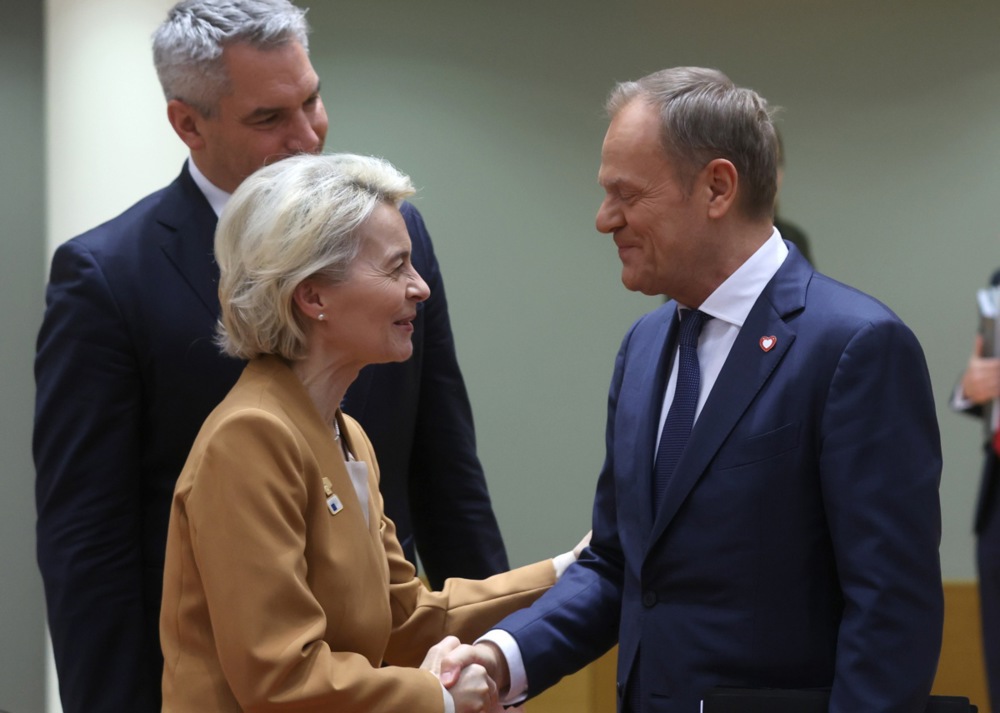Friday 22 March will mark 100 days of Donald Tusk’s government. It is a symbolic milestone, having pledged to push through 100 liberalising reforms in his first 100 days. Only a few promises have been fully implemented – and even those are mostly of little consequence.
The most important are the state financing of vitro treatments, a lower VAT rate for beauty salons, and relocating the Ministry of Industry to the Silesian industrial basin. Tusk is also credited with unlocking cash from the EU’s pandemic reconstruction fund. This is partly true, although Commissioner Vera Jurova, who is particularly friendly to the new government, says she is still waiting for the results of the promised changes.
Those most satisfied with the rule of Donald Tusk are all those who hoped for political revenge against the Law and Justice party (PiS). In a poll conducted by a private radio station, 57 per cent of respondents favoured punishing and firing as many people as possible who worked in public institutions during the PiS government (2016-2023). The question directly implied “punishment” for the simple fact that someone worked in public institutions during PiS rule, which is in line with the narrative imposed by those in power.
Not surprisingly, Donald Tusk deftly plays on these sentiments and, step by step, methodically, carries out a plan to purge the public sphere, not only of PiS allies but also of those who have not criticized PiS loudly enough. Among them was the head of Radio Bielsat, a radio station broadcasting in Belarus and Russia to opponents of Putin and Lukashenko. Ms. Romaszewska was held in high esteem by all political groups, and the radio station was for years co-financed by various Polish governments as well as the UK and US governments. It was considered one of the best tools for influencing the local community.
The retaliation against Law and Justice is proceeding according to its almost theatrical script. Individual agencies and state companies are scrutinised one by one, and the responsible ministers first announce that they are appalled by the abuses and misappropriation of money. They usually don’t give details, but these appear unexpectedly in friendly media, where “investigative” journalists announce that they have managed to unearth secret documents. Usually, this is information about high salaries, purchases of unnecessary equipment, or contracts with suspect people. Without questioning these findings, one may think we are learning only the tip of the iceberg of fraud.
A day, maybe two passes, and we learn about another company or ministry and more fraud. At the same time, we never discover the complete picture of these abuses, as if the director of this show wanted to entrust it to our conspiratorial imagination.
Sometimes, an ” investigative journalist” gets to exceptional material, like a visitors book for the president of a state-owned company. The list may include journalists associated withPiS or people with suspicious reputations. At the same time, the journalist never asks the chairman or these people what they were doing there.
Occasionally, the “investigative journalist” pulls wiretap recordings from his secret sources, where again, we learn a snippet of something that, let loose, could turn out to be some scandal.
At the same time, the state media and friendly radio and television stations broadcast live public hearings of PiS politicians in parliament. Those running investigative committees probing predecessors’ sins do their best to provide viewers with an intriguing spectacle. In most cases, the factual findings are less important than the spectacular acts of humiliation of the summoned politicians. The recent hours-long interrogation of Jaroslaw Kaczynski was an embarrassing display of theatrical prowess, mutual impertinences, procedural chaos, but above all venting of anti-PiS emotions.
Stigmatising those associated with the previous government has become a daily media event. One by one, each minister in Donald Tusk’s government feels obliged to release sensational information from internal audits of previous governments and announce lists of people to be fired.
The ripples from the legally questionable dismissals of public media journalists and independent prosecutors had not yet subsided when the foreign minister announced the wholesale dismissal of almost half of Poland’s ambassadors. Not only was the scale of the dismissals shocking and unprecedented in the history of Polish diplomacy, but there was also the foreign ministry’s suggestion that the dismissed diplomats had not served Poland well.
Worse, the decision to dismiss the ambassadors was not put to the president, who, according to the Constitution, must give his official approval. There is now a danger that in a heated geopolitical period, Poland will be left without ambassadors in the world’s major capitals – at least for the next year and a half until the end of the presidential term.
What certainly works in Tusk’s favour is the European Commission’s forbearance toward the government’s strange behavior. This has much to do with the coming Euro elections. In light of other Western European countries turning to the right, Poland appears a liberal hope for the future.
During a recent visit to Poland, Commissioner Jurova evasively answered questions about the government’s unlawful actions in dismissing journalists and prosecutors. She did not hide her great satisfaction with the change of government in Warsaw.
This should be no surprise, given that Donald Tusk has proved to be the perfect trouper for Brussels’s challenging times. He and his MEPs, from the start, put their signatures on the most controversial projects without question. These include the proposal to change EU treaties and the law on restoration of natural resources, which has brought thousands of farmers to the streets across Europe and Poland.
Political wrangling has distracted the Polish public from unfortunate decisions and unfulfilled promises. Spectacular dismissals, investigations, media leaks, intimidation, and ostracisation of anyone associated with the previous government are the hallmarks of Donald Tusk’s 100-day rule.
The question is, how long can the government live on this fuel? Especially since the government’s problems will be compounded by rising food prices due to the planned reinstatement of VAT on food and increasing energy prices after the withdrawal of government subsidies. When will people start asking about the cheap housing, fuel, and tax cuts promised in the election campaign?
These are questions that Tusk and his immediate entourage need to answer. Tusk’s most distinguished and closest ministers are preparing to migrate to Brussels. Some plan to go to the European Parliament, and others, like Mr. Sikorski, to the European Commission, where he wants to become defense commissioner.
They all assume that after the change in the treaties, positions, and power at home will be secondary and illusory. The real power will be in Brussels. Hence, their perspective does not go further than the middle of this year; for that, the fuel of hatred should be enough. Opinion polls show that the road to Brussels is open to them. The question is whether such talent and experience is what the Union needs most.





Make no mistake, Germany is attempting to thwart Poland’s sovereignty and future prosperity – and Tusk’s government is playing along